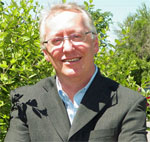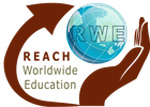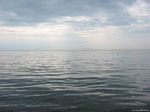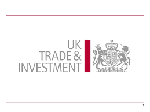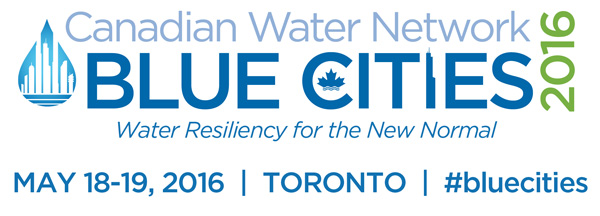| January 28, 2016
|
In This Issue |
|
CWWA News
|
|
|
Member News
|
|
|
Federal Initiatives
|
|
|
Provincial News
|
|
|
International News
|
|
|
Upcoming Events
|
|
|
Snippings and Clippings
|
|
We truly are expecting this to be a happy new year for all of us. While we hate to see the effect of the low oil prices on our western communities, we hope there will be corresponding savings in our municipal budgets and that the low dollar may spark investment in Canadian industries and communities.
|
Together, we raised $2,500 for the REACH Haiti charity at our National Water & Wastewater Conference in Whistler. For those who attended the conference, they will remember all the silent auction items at each of the exhibitor booths.
|
CWWA is happy to announce the 2015-16 Utility Excellence Awards. These Awards highlight the remarkable work our members are accomplishing in their communities. Water and wastewater utilities perform a vital service, protecting both human health and the environment, and these Awards offer peer recognition of these efforts.
|
The Window on Ottawa is CWWA’s core event featuring presentations from federal departments and national organizations on new initiatives and regulatory developments on a national level. This is your chance to hear what’s coming down the pipe from the federal government.
|
CWWA’s first National Water and Wastewater Conference was a huge success. It truly was a wonderful three days of information sharing, networking and socializing. Our technical program was top notch, and our social activities were fun, and offered some amazing networking opportunities. We are excited to announce the 2016 National Water and Wastewater Conference, taking place November 13-16 in Toronto Ontario.
Nov.13, 2016, Toronto, ON Today, nations face an uncertain and complex security landscape in which threats impact/target the physical, social, economic and cyber domains. Threats to national security, such as that against critical infrastructures not only stem from man-made acts but also from natural hazards. The Canada/US Blackout (2003), Hurricane Katrina (2005), Fukushima (2011) and Hurricane Sandy (2012) are examples highlighting the vulnerability of critical infrastructures to natural hazards and the crippling effect they have on the social and economic well-being of a community and a nation.
|
The Canadian Municipal Water Consortium set up under the auspices of the Canadian Water Network (CWN) - a federally funded Network of Centres of Excellence (NCE) water research organization - recently issued a Call for Proposals (CFP) for projects designed to integrate, share and apply existing knowledge in the areas of climate resiliency and financial sustainability of municipal water systems.
|
The FCM Green Municipal Funds Partners for Places program is a collaborative matching grant program that connects local governments with local funders to invest in sustainability projects. The program, funded by the Funders' Network for Smart Growth and Livable Communities (TFN), builds relationships while creating opportunities for municipalities and regions in Canada and the United States to improve their communities.
|
Health Canada recently released Bromate in Drinking Water - Document for Public Consultation document summarizes the results of a re-assessment by the Federal-Provincial-Territorial Committee on Drinking Water (CDW) on available information with the intent of updating the current drinking water guideline.
|
The Prime Minister, Justin Trudeau, recently announced that the Government of Canada will invest $12 million in the Southern Ontario Water Consortium (SOWC) - a group of post-secondary institutions that work together to advance clean and innovative water technologies.
|
Ontario’s drinking water continues to be among the best protected in the world, says the province's Minister of the Environment and Climate Change in a report that focuses on what is being done to protect Ontario’s rivers, lakes and ground water. The Minister’s Annual Report on Drinking Water 2015 also looks more closely at how the government is working to reduce the impacts of climate change on water, the MOECC said in a news release.
|
UK Trade & Investment Canada provides a free service which may be of interest to CWWA members. UKTI assists companies looking to expand their product offering in Canada, or in need of a new source of supply, by helping them identify the best British services, technologies, and products. See the information sheet for more information.
|
Browse the events being offered by CWWA and our Partners.
|
Blue Cities 2016: Water Resiliency for the New Normal is the inaugural flagship event of the Canadian Municipal Water Consortium, which will bring together proactive municipal water executives, industry partners and topic experts from across Canada and the globe. Conference tracks include: Impacts and Risk Identification for the New Normal, the Business of Getting to Sustainable Systems, Infrastructure and Planning for More Resilient Systems and Communications: Public Concerns, Facts and Tough Decisions.
Water online I have a valued contact who works for a water utility in California, where water issues are a daily concern for providers and customers alike. One would think that the prospect of not having adequate water service would peak customers’ concerns, but it’s the prospect of losing about $20 per month that seems to worry them more — or at least the angriest, loudest of them. The reaction is scary, in fact.
|
Water Canada As one of the fastest growing municipalities in Canada, York Region identified the need to expand its wastewater treatment capacity. Based on the region’s own forecasts, in 25 years, more than 1.5 million people in 510,000 households will call the region home. At the same time, parts of the region face new regulatory standards for the effluent of wastewater—the most stringent water quality standards in Ontario—as they lie inside the boundaries of the Lake Simcoe watershed.
|
Tpo Mag Through an unconventional approach to decommissioning a two-cell wastewater treatment lagoon covering 30 acres, the Manitoba Town of Niverville nearly halved its decommissioning cost, created a visitor attraction and won an award for innovation and sustainability.
|
AWWA Newsletter EL PASO -- On the east side of this Chihuahuan Desert city, home of the first high-rise Hilton Hotel, Fort Bliss military post, and a gigantic man-made star that hovers overhead, an off-white tent rises unceremoniously next to clumps of trees and a gravel parking lot
|
WaterOnline Recycled water is coming under scrutiny in Denver, where a major consumer is narrowing its use of this resource. "The Denver Zoo has decided to stop feeding recycled water to elephants, rhinos and tapirs in its ‘crown jewel’ exhibit, the Toyota Elephant Passage," Westword recently reported.
|
That’s the philosophy of London’s sewer outreach program, and as much as we might not want to admit it – we’re probably all guilty of not thinking once or twice. Many Londoners might not be aware but flushing anything down a toilet that’s not human waste can lead to huge issues down the road, and sewer systems around the world are feeling the repercussions.
|
The Globe and Mail Since last May, trucks have been rolling into a site near Shawnigan Lake to unload cargo: soil dredged from a Port Moody property in the Lower Mainland. Under provincial regulations, the soil isn’t hazardous; if it were, it would have to be disposed of in a provincially approved hazardous waste facility. But it is "contaminated," meaning the amount of, say, salt, lead or mercury it contains exceeds numerical standards set out in B.C. legislation.
|
The Globe and Mail U.S. President Barack Obama will ensure that federal officials are held accountable if any wrongdoing is uncovered in the U.S. Environmental Protection Agency (EPA)’s handling of the water contamination crisis in Flint, Mich., the White House said on Thursday.
|
Journal of Commerce One-third of Canada's municipal infrastructure is in fair, poor or very poor condition, the latest Canadian Infrastructure Report Card (CIRC) shows. The survey asked municipalities to qualitatively assess their infrastructure according to a five-point rating scale ranging from "Very Good" to "Very Poor".
|
Chronicle-Herald The World Health Organization is set to recognize a public information campaign headed by John Drage and Patrick Wall, who helped quell public fears over radioactive lead in Nova Scotia drinking water more than a decade ago.
|
|
| |
|




